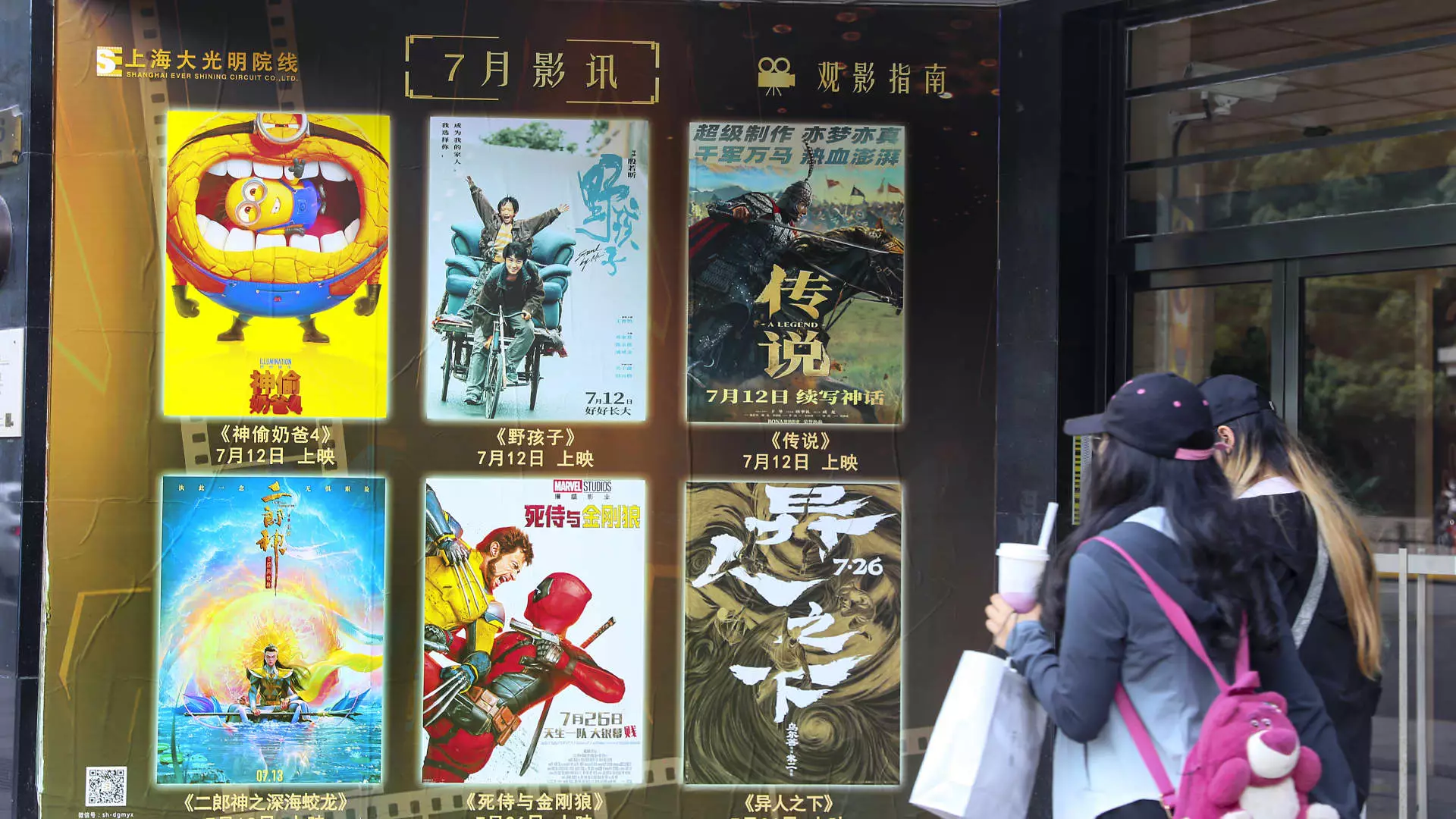The escalating trade war between the United States and China has added an unexpected layer of complexity to Hollywood’s already intricate relationship with overseas markets. Just as President Trump ramped up tariffs on Chinese imports, the Chinese government responded not just with economic measures but by wielding the power to shape cultural exports as well. Picture this: studios that once saw the Chinese box office as a gilded golden ticket are suddenly facing a reality where the very markets that buoyed their ambitions are swiftly tightening their grips. Can Hollywood adapt, or are they simply outplayed?
The Box Office Mirage
Not long ago, it would have been unfathomable to envision a decline in Hollywood ticket sales within China. The allure of American films was potent, captivating international audiences with their glitz and glamour. Companies like Disney and Warner Bros. Discovery thrived, leaning heavily on projections of robust earnings, buoyed by Chinese viewership. However, as the Chinese cinema landscape evolved, audience appetites shifted dramatically toward home-grown content. Once a bastion of American filmmaking triumph, the region is increasingly dominated by its own burgeoning film industry, producing captivating blockbusters that resonate far better with local audiences than the latest Hollywood superhero flick.
Ann Sarnoff, the former CEO of Warner Bros., interprets this as a tectonic shift, asserting that “the Chinese market has become very challenging for U.S. studios.” With rental rates dropping to 25%, this diminishing financial incentive spells doom for studios that leaned on Chinese markets to recoup production costs. The very basis of their financial forecasts now crumbles, with projections for box office returns from China either shrinking or disappearing altogether.
The Fouling of the Golden Goose
The expiration of the U.S.-China Film Agreement in 2017, which once guaranteed a steady influx of U.S. films into Chinese theaters, stands as a symbolic nail in the coffin for Hollywood’s dreams of prosperity in China. The trade war that commenced under Trump did not emphasize film as a critical sector during negotiations, allowing more sophisticated local productions to flourish unchecked. As a case in point, the lack of American films fueling the growth of the Chinese box office has drawn a stark comparison to previous years when titles like “Avengers: Endgame” reigned supreme, cashing in over $600 million in the region alone.
What’s particularly alarming is the data trend indicating that only eight American films have crossed the $100 million threshold in recent years. In stark contrast, domestic films like “Ne Zha 2” are breaking records, becoming the only non-Hollywood movie to hit the astronomical mark of $1 billion in a single market. This shift highlights a dismal reality for Hollywood: the wider the chasm grows, the more irrelevant they risk becoming in a rapidly evolving cinematic landscape.
The Double-Edged Sword of Currency Fluctuations
Additionally, there’s a layered fiscal reality lurking beneath the surface, complicating Hollywood’s financial outlook. While a weakening dollar can boost international box office returns, it simultaneously escalates the operational costs for studios engaging in international markets. Ironically, this tumultuous currency environment may create the very challenges that led to their dependence on foreign markets in the first place.
This volatility, coupled with ever-changing tariff strategies, has left Hollywood executives like deer in headlights as they navigate the unknowable. The future remains murky, and the potential fallout could be catastrophic. As traditional staples of American cinema continue to flounder, the question looms: Can Hollywood evolve in a climate where it is increasingly sidelined, or will it succumb to the very trade skirmishes that were supposed to galvanize its global dominance?
The Unsettling Vision of an American Dream in Decline
In a world where Hollywood once reveled in its promotional power and expansive box office dibs with little scrutiny, it now seems precariously close to losing its foothold in a significant market. With the glaring contrast between the American and Chinese film industries now glaringly pronounced, one must ask whether Hollywood can shed its old skin and arise anew. The pressures mount as both national identities collide on a global stage, affecting everything from wealth to cultural representation.
The unsettling reality is that the repercussions of Trump’s strategies are felt not just in numbers on a report but in the very heart of a cherished cultural institution. As the old paradigms fade, so too might the once-unstoppable American cinematic dream. And, in this new landscape, it might not be money that decides the victor but the art of storytelling that resonates with audiences ready to embrace the next wave of filmmaking narratives from their own shores.

